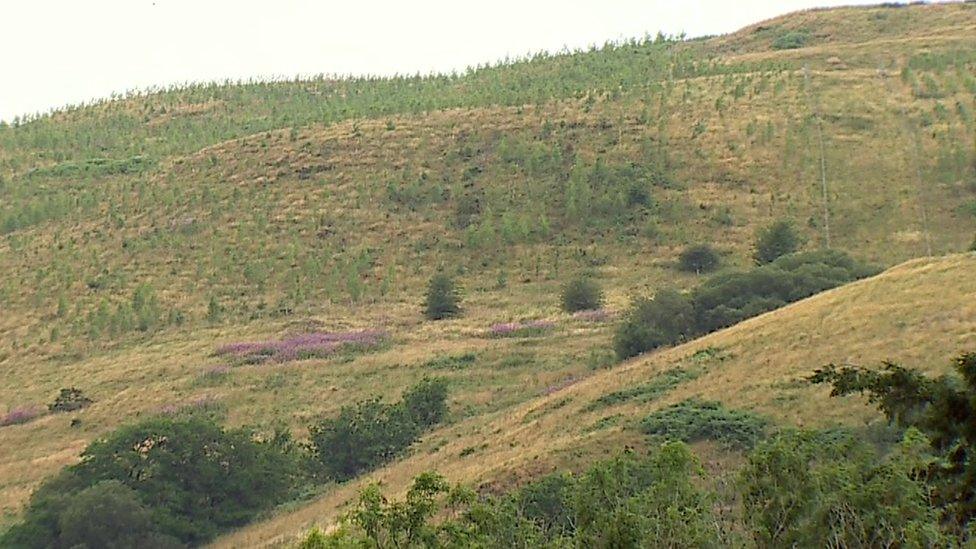Climate change: Corporate mass tree planting 'damaging' nature
- Published
- comments
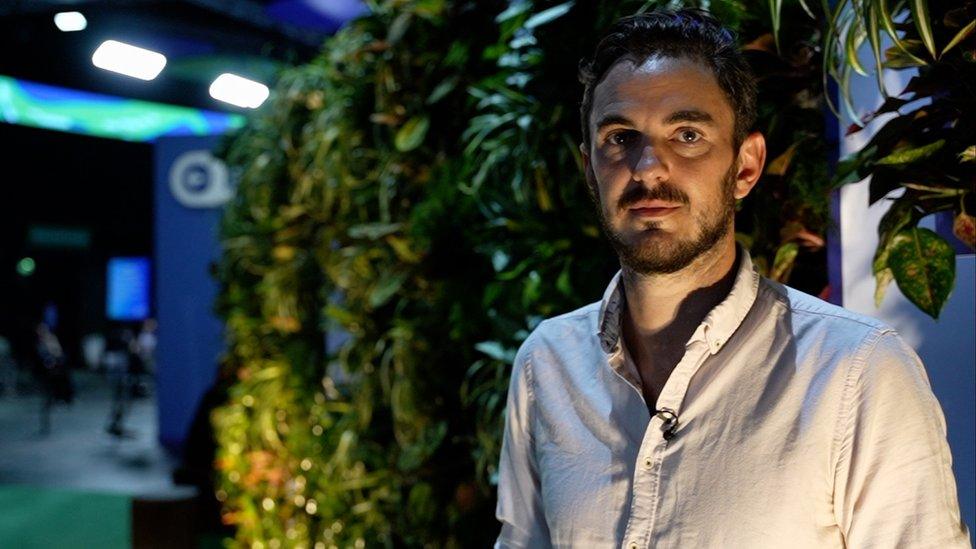
Thomas Crowther has been shortlisted for the Earthshot prize, a reward that recognises innovations that help save the planet
Large firms buying up farms in rural Wales to plant trees have been accused of using the land to "offset their guilt" over emissions.
Thomas Crowther, an Earthshot Prize, external finalist, also warned mass planting of the same type of tree on swathes of land could be "dangerous" for nature.
Recently a number of west Wales' farms have been bought by investment companies for tree planting schemes.
The scientist has urged companies to be socially and ecologically responsible.
Greater effort to conserve a wide variety of ecosystems is needed to meet climate change goals, and people from the areas had to be involved, he said.
Moves by large-scale investment companies to buy up family farms - in an attempt to offset carbon emissions - have led to fears whole communities could be "destroyed".
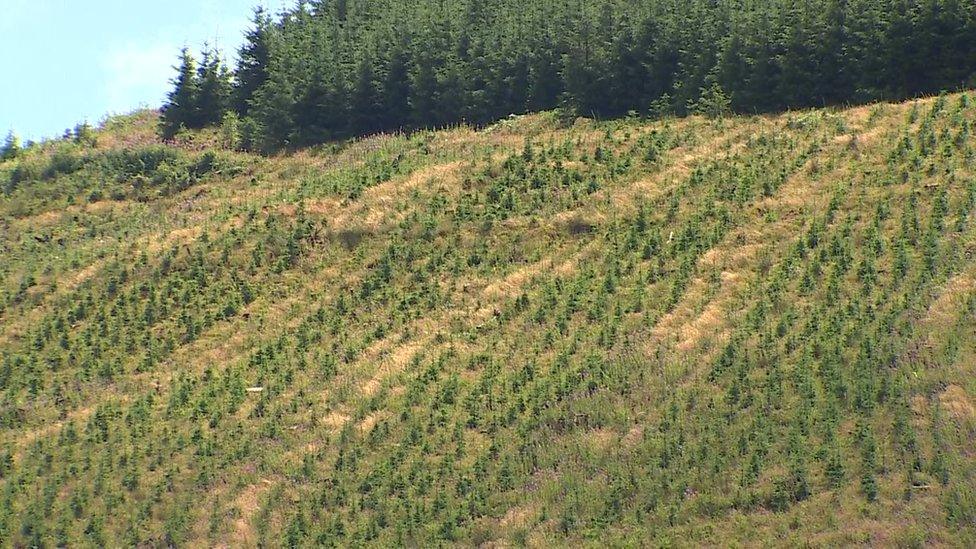
As well as potential ecological damage, there are concerns the loss of farmland may harm people's communities
Prof Crowther, who grew up in Prestatyn, Denbighshire, is a professor of ecosystem ecology at ETH Zurich University in Switzerland and also chairs an advisory board for the United Nations on ecosystem restoration.
He warned blanket planting of trees was "hugely threatening".
"This is not about offsetting your guilt, that would be an absolutely devastating step for climate change," he said.
Speaking at COP26 in Glasgow, Prof Crowther said the loss of biodiversity was arguably a bigger threat to the planet than climate change.
"If we save the climate but we lose nature that's still an unliveable planet," said the scientist, who studied at Cardiff University.
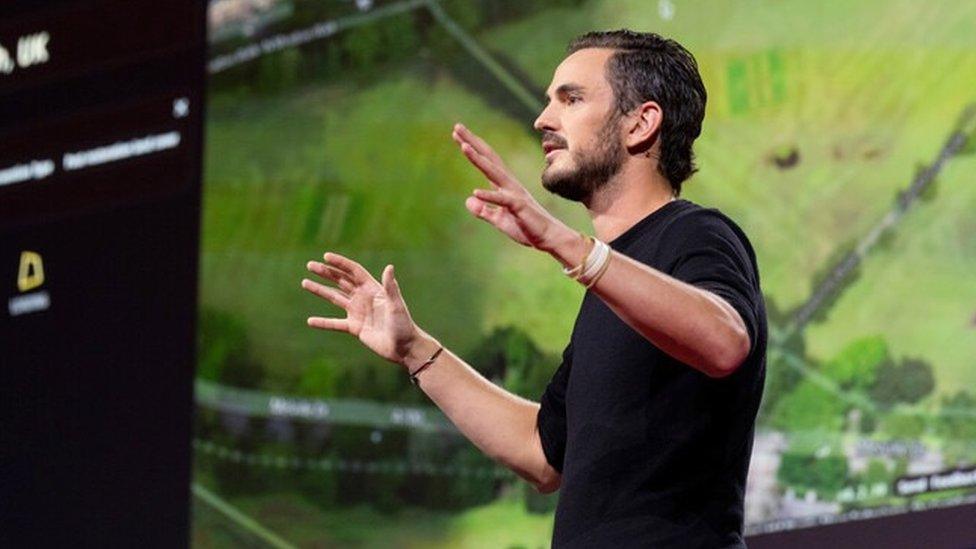
Prof Crowther spoke at the TED Countdown climate summit in Edinburgh
He said it had become increasingly clear that efforts to limit the rise in global temperatures to 1.5 degrees depended on doing much more to restore the natural world.
Prof Crowther's post-doctoral research made headlines when it estimated there were approximately 3.04 trillion trees on Earth - 46% fewer than at the onset of agriculture about 12,000 years ago.
It sparked the Trillion Tree campaign which is being "very prominently discussed" at COP26.
Although Prof Crowther emphasised it was important people "understand that we're not just talking about planting trees".
"In the vast majority of cases, what we're really going to be doing is protecting large areas of land, we need to protect a third of the land surface so that nature can recover and naturally grow," he added.
Inside one of the world's largest trees
A recent report by environment regulators in Wales found that almost half of the country's protected sites for nature were left unmonitored due to lack of funds.
Where information was held, Natural Resources Wales said 60% of sites were in "unfavourable condition".
Prof Crowther said this "absolutely" needed to be sorted out and that technology and online platforms could help with monitoring.
His own - Restor - which aims to connect restoration projects from around the world to increase the impact of their efforts, was shortlisted in the nature conservation category for the Earthshot Prize.
People wanting to start their own projects can also use the site to find others with the expertise needed, the aim being to "make an economically sustainable, global restoration movement".

Prof Crowther said Earthshot Prize founder the Duke of Cambridge has shown a lot of support for the project
The Earthshot Prize was devised by Prince William to reward innovations that could help save the planet.
Prof Crowther said the experience had been "an absolute whirlwind".
"Prince William has been so supportive, he's actually working with us to support all of these efforts.
"It's not just that you're finalists and well done you, they're committed to helping us ensure that we succeed in the long term because that's what the world needs."


Related topics
- Published7 November 2021
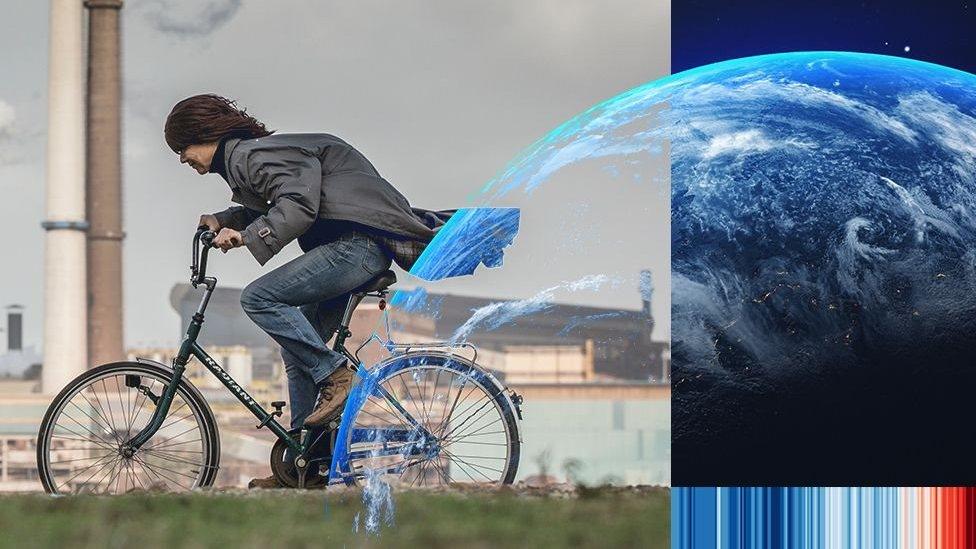
- Published30 June 2021
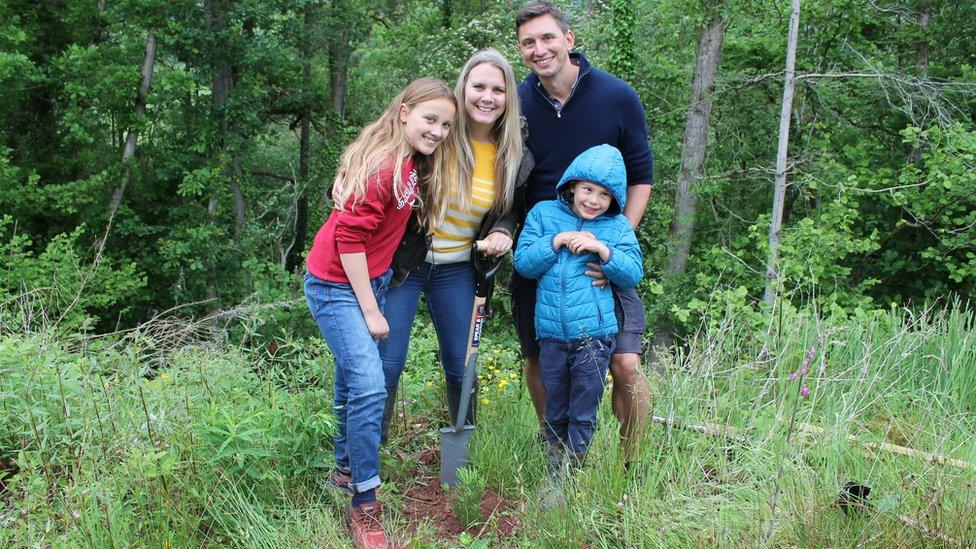
- Published16 June 2020
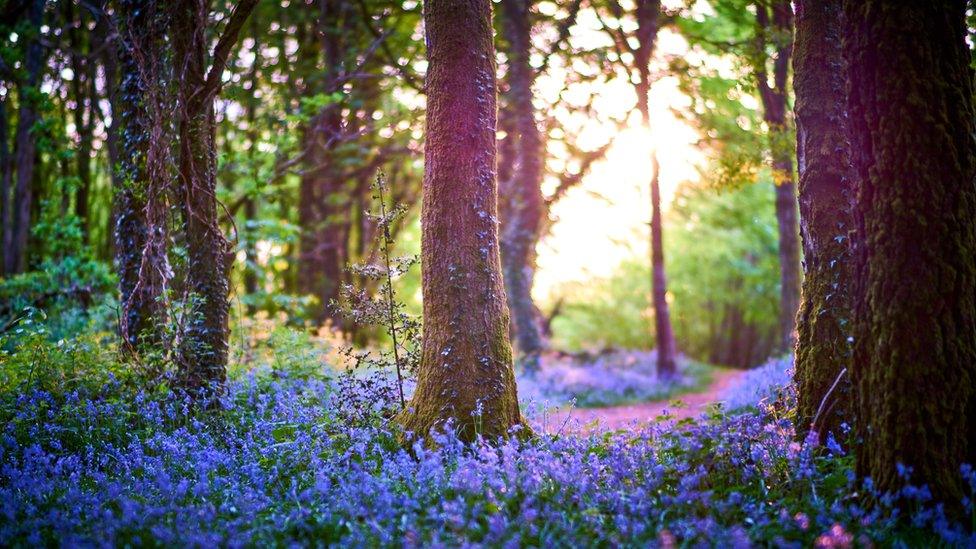
- Published6 August 2021
